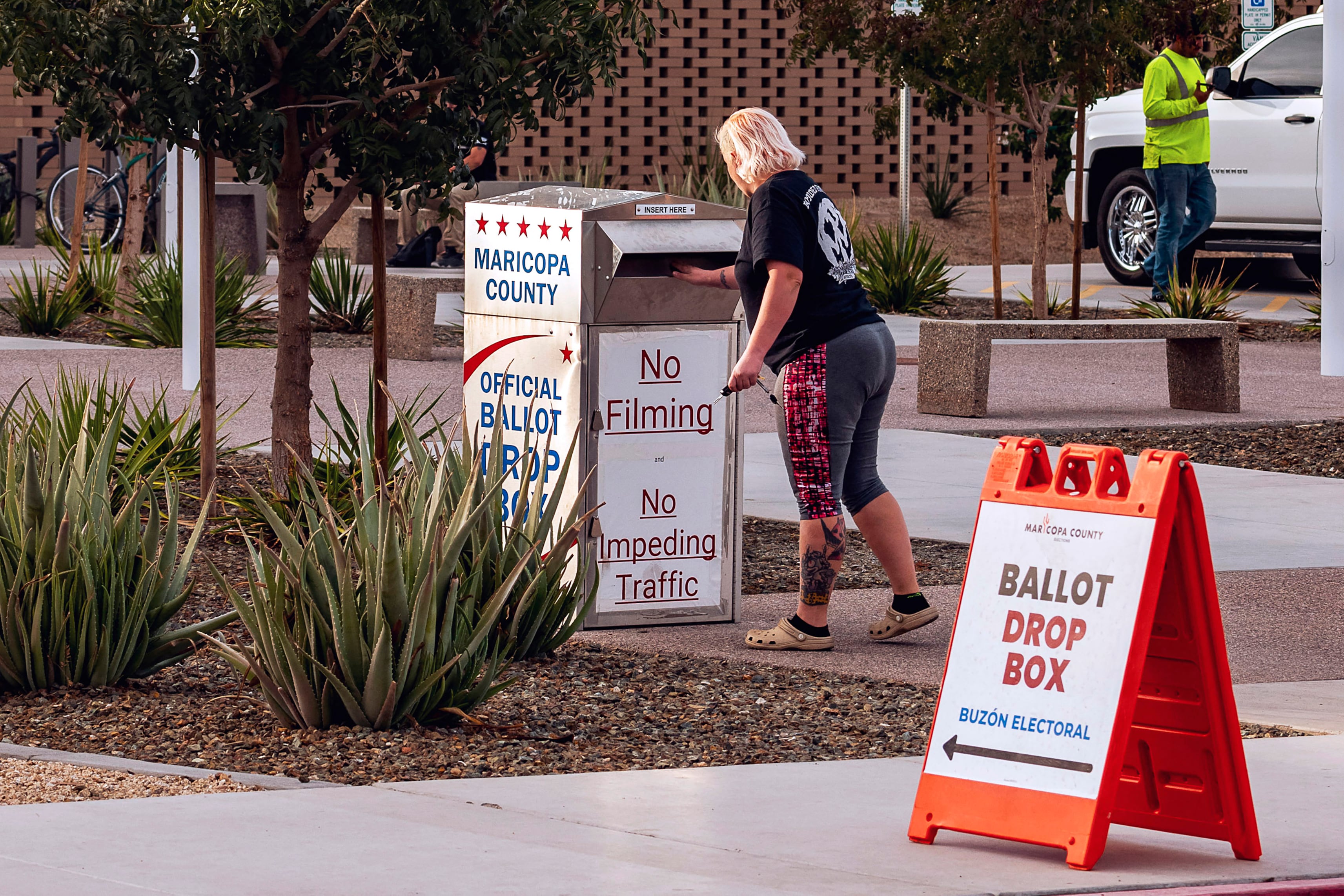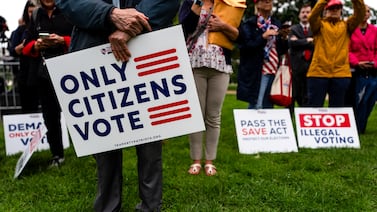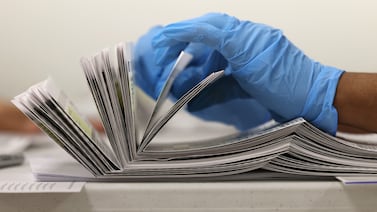Votebeat is a nonprofit news organization reporting on voting access and election administration across the U.S. Sign up for Votebeat Arizona’s free newsletter here.
Arizona election officials would be instructed to provide more notice to voters who are at risk of being removed from the state’s early-voting list, under a conditional legal settlement with voting rights groups.
The settlement, which was filed in court Monday and is still subject to final approval, would resolve a longstanding challenge to a 2021 law that eliminated the state’s Permanent Early Voting List. The agreement says voters who face removal should be notified two additional times before they are taken off the list, and once afterward.
The agreement does not appear to impose any new notification requirements on county recorders, who manage county voter rolls. What it would do is provide suggested best practices for how the recorders should implement the law, including the schedule of notices. Because the additional notices wouldn’t be required, voters across the state could face unequal treatment as recorders begin implementing the law for the first time in 2027.
Still, the additional notices would give voters a greater opportunity to remain on the early-voting list and continue to receive ballots by mail for each election, said John Bonifaz, president of Free Speech for People, a nonprofit legal advocacy organization that served as co-counsel for the organizations that sued.
For nearly two decades, Arizona voters could sign up to be on the Permanent Early Voting List and automatically receive a ballot in the mail for all elections they were eligible for. Under the new law, Senate Bill 1485, the list is now called the Active Early Voting List, and starting in January 2027 a voter will be removed from the list if they don’t cast their mail ballot for two consecutive general election cycles — a four-year period. That includes statewide general and primary elections, as well as local candidate elections.
People who are taken off the early-voting list will still be registered to vote, but will need to ask to be added back, or request a one-time ballot, in order to get a ballot in the mail automatically for future elections.
About 75% of Arizona’s registered voters are on the Active Early Voting List. They can return their mail ballots by mail or by dropping it off at a ballot drop box or voting location.
Mi Familia Vota, Living United for Change in Arizona, and other organizations had sued the state in 2021, claiming that the new law was intentionally discriminatory against minority voters — especially Native American, Latino and Black voters — and violated federal voting rights laws.
The organizations reached the conditional settlement earlier this week with the Arizona Secretary of State’s Office, along with the Republican National Committee and Republican Senatorial Committee, which had intervened in the case to defend the law. The settlement was reviewed Wednesday by a committee run by the Secretary of State’s Office that includes county recorders. The committee will discuss the final language on the best practices next month.
Under the draft language, the Secretary of State’s Office would provide formal guidance to recorders telling them that voters at risk of being removed should be notified 30 days before Election Day that they need to cast their mail ballot in that election or they will be marked for removal. The guidance says that the “best practice” will be to include the language in the notice in uppercase letters warning the voter of the risk of removal.
Under the new law, counties were already required to send a notice by Jan. 15 of each odd-numbered year to voters marked for removal. If the voter did not return the notice and confirm in writing their wish to remain on the list, they would be removed.
The new proposed guidance says counties should send a follow-up reminder by March of that year to voters who haven’t responded. And then, if a county recorder removes a voter for not responding to the notice, the guidance says, they should notify the voter within 60 days.
Jen Fifield is a reporter for Votebeat based in Arizona. Contact Jen at jfifield@votebeat.org.





